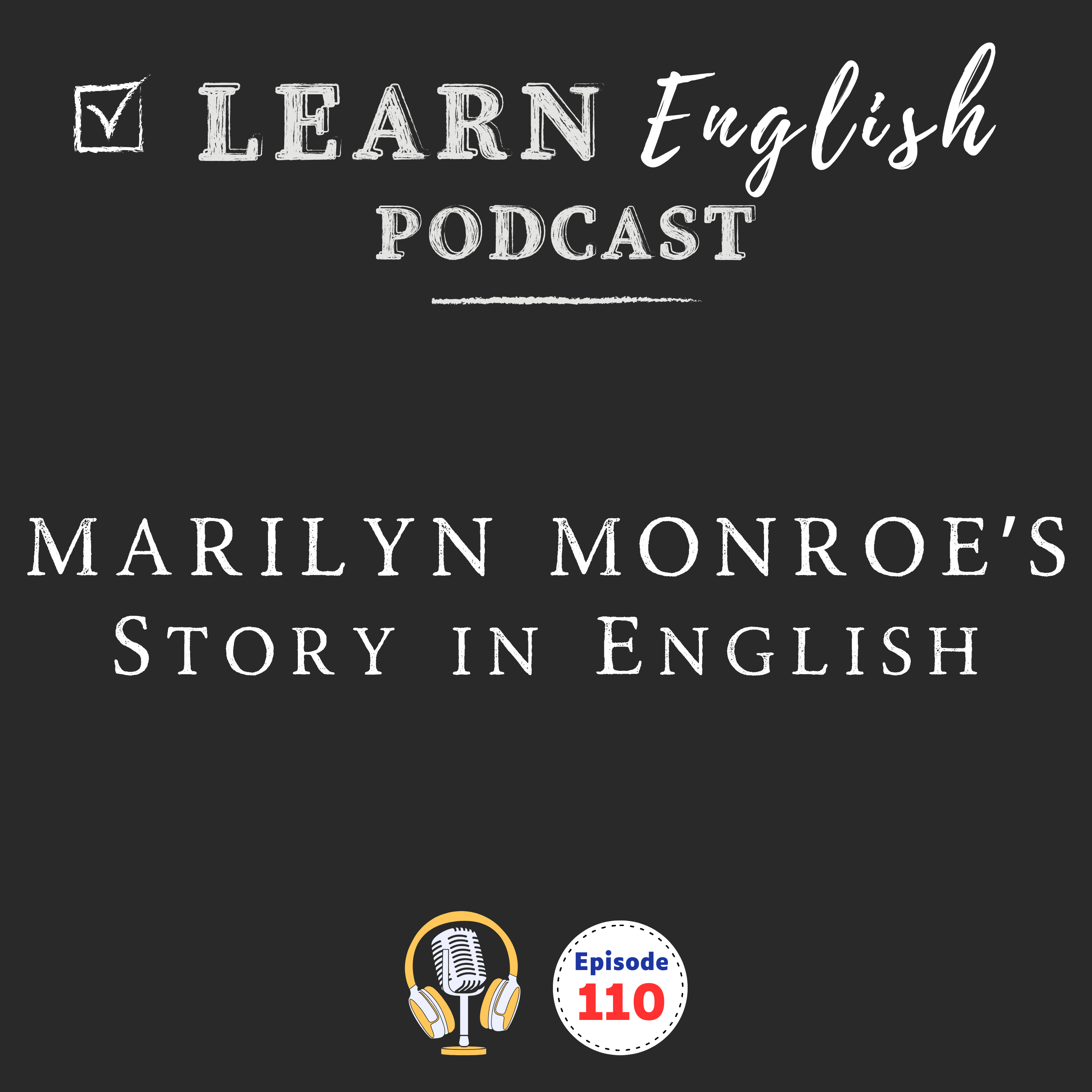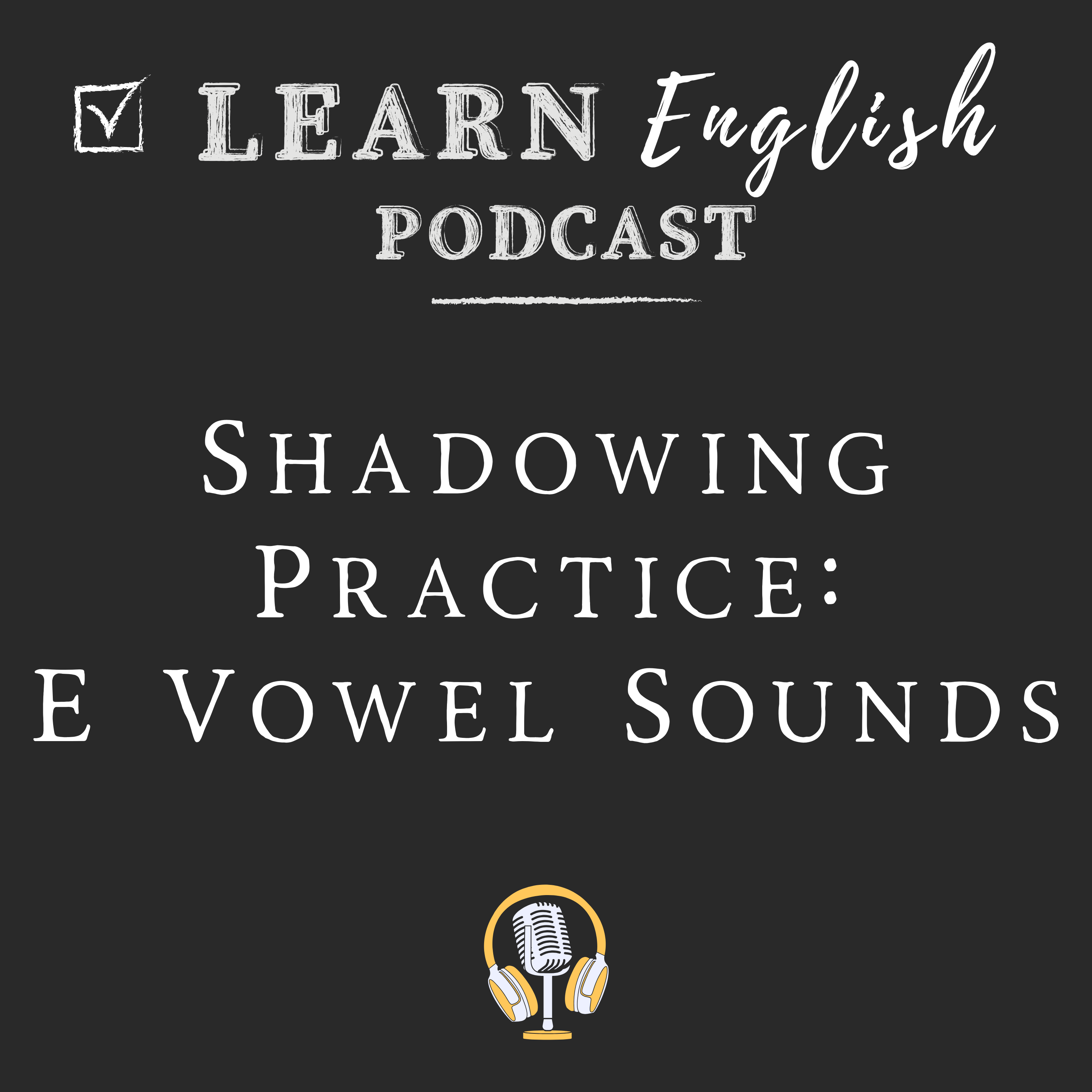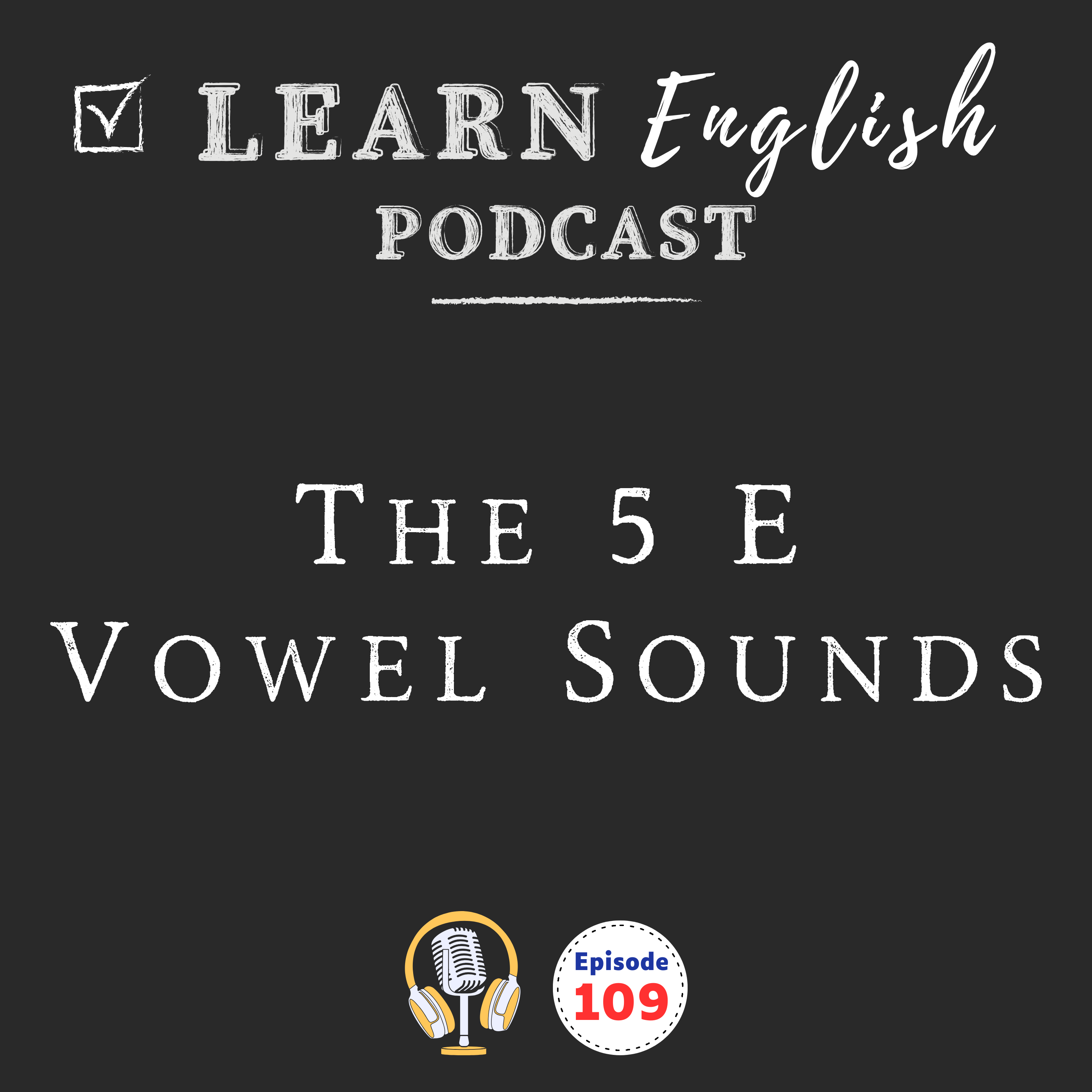Learn English Podcast
The Learn English Podcast helps B2 English learners improve listening, vocabulary, and confidence through engaging, story-based episodes about American culture, world events, and fascinating true stories.
LISTEN & SUBSCRIBE ON:
LATEST EPISODE➷
🎧 Marilyn Monroe is remembered as a symbol — but her real life was far more complex.
This episode explores Marilyn Monroe’s early life, her transformation into a Hollywood star, the roles she was typecast into, and her struggle for control and respect. Listeners learn how fame affected her personal life and why her story continues to resonate today.
Designed for intermediate English learners, this episode teaches real American English in context, with clear explanations of vocabulary related to identity, fame, relationships, and popular culture.
🔔 Follow us on social media @LearnEnglishPod and visit our website:
Podcast website: https://learnenglishpod.com/
Follow us on social Media: https://linktr.ee/learnenglishpod
Take lessons with me: https://www.italki.com/en/teacher/8531387
📚Affiliate link for italki: https://www.italki.com/en/i/ref/GBBdbb
Affiliate link for Lingq: https://www.lingq.com/?referral=msusc
📝 Vocabulary list:
1) unstable: not safe or consistent
2) foster home: a temporary home for children who cannot live with their parents
3) withdrawn: quiet and not social
4) transformation: a big change in appearance or life
5) contract: a legal agreement for work
6) studio system: the old Hollywood system where studios controlled actors
7) public image: how someone appears to the public
8) typecast: to be given the same kind of role repeatedly
9) dumb blonde: a stereotype of a beautiful but unintelligent woman
10) iconic: very famous and widely recognized
11) pop culture: popular movies, music, and celebrities
12) private life: life away from public attention
13) reassurance: emotional support or encouragement
14) reputation: what people think about someone

The Podcast
Welcome English Learners!
If you’re tired of boring English lessons, you’re in the right place.
The Learn English Podcast helps B2 learners improve listening, vocabulary, and confidence through real stories about culture, history, and everyday life. Each episode gives you English that is natural, understandable, and meaningful—so you learn without stress or confusion.
Here, you won’t memorize lists or repeat unnatural sentences. You’ll hear real English in context, spoken the way people use it in the real world. Bit by bit, your brain starts connecting words, expressions, and meaning automatically. If you want English that feels real—not like homework—join us and start learning through stories you’ll actually enjoy.
The Learn English Podcast

EPISODES
LATEST EPISODES
🎧 Marilyn Monroe is remembered as a symbol — but her real life was far more complex.
This episode explores Marilyn Monroe’s early life, her transformation into a Hollywood star, the roles she was typecast into, and her struggle for control and respect. Listeners learn how fame affected her personal life and why her story continues to resonate today.
Designed for intermediate English learners, this episode teaches real American English in context, with clear explanations of vocabulary related to identity, fame, relationships, and popular culture.
🔔 Follow us on social media @LearnEnglishPod and visit our website:
Podcast website: https://learnenglishpod.com/
Follow us on social Media: https://linktr.ee/learnenglishpod
Take lessons with me: https://www.italki.com/en/teacher/8531387
📚Affiliate link for italki: https://www.italki.com/en/i/ref/GBBdbb
Affiliate link for Lingq: https://www.lingq.com/?referral=msusc
📝 Vocabulary list:
1) unstable: not safe or consistent
2) foster home: a temporary home for children who cannot live with their parents
3) withdrawn: quiet and not social
4) transformation: a big change in appearance or life
5) contract: a legal agreement for work
6) studio system: the old Hollywood system where studios controlled actors
7) public image: how someone appears to the public
8) typecast: to be given the same kind of role repeatedly
9) dumb blonde: a stereotype of a beautiful but unintelligent woman
10) iconic: very famous and widely recognized
11) pop culture: popular movies, music, and celebrities
12) private life: life away from public attention
13) reassurance: emotional support or encouragement
14) reputation: what people think about someone




